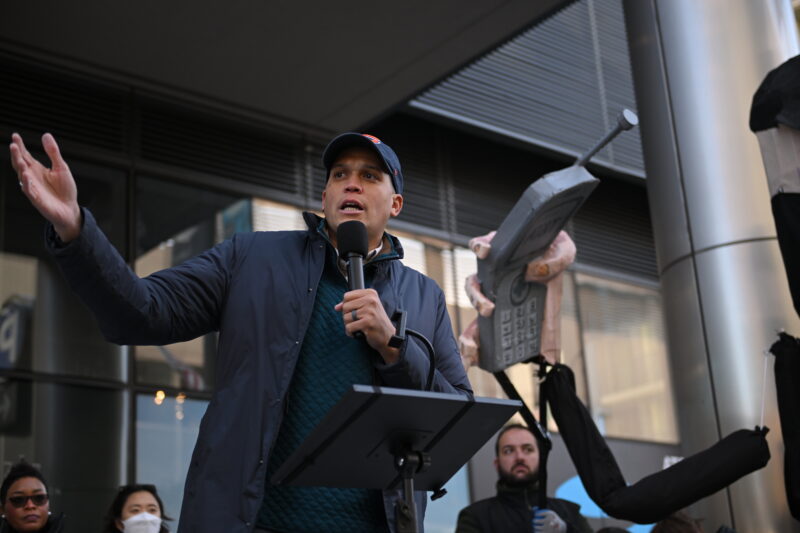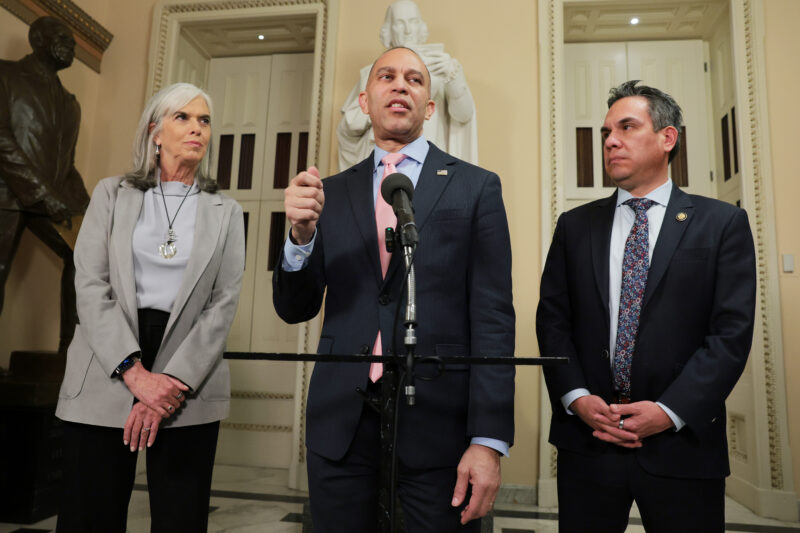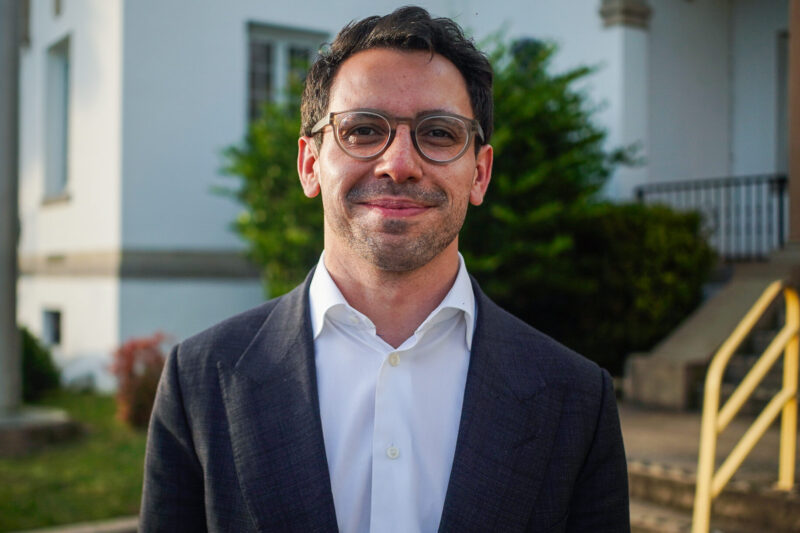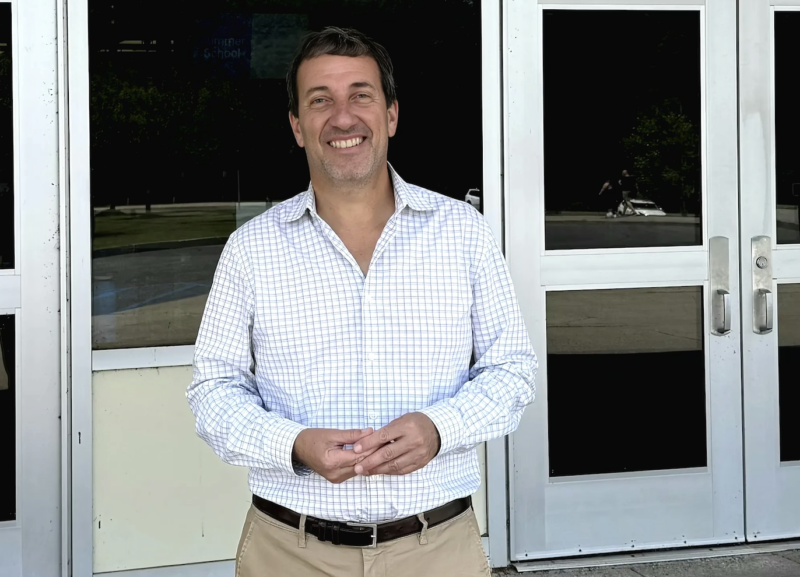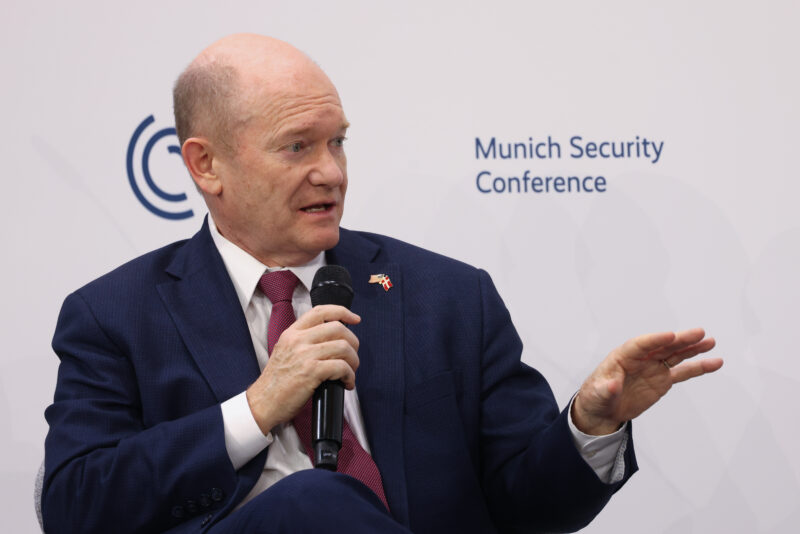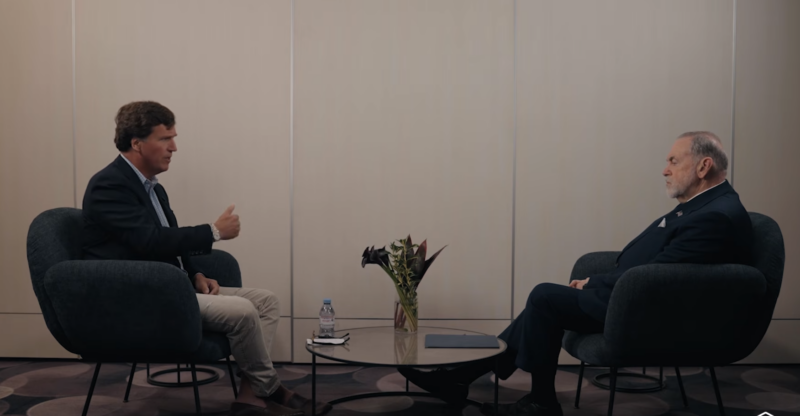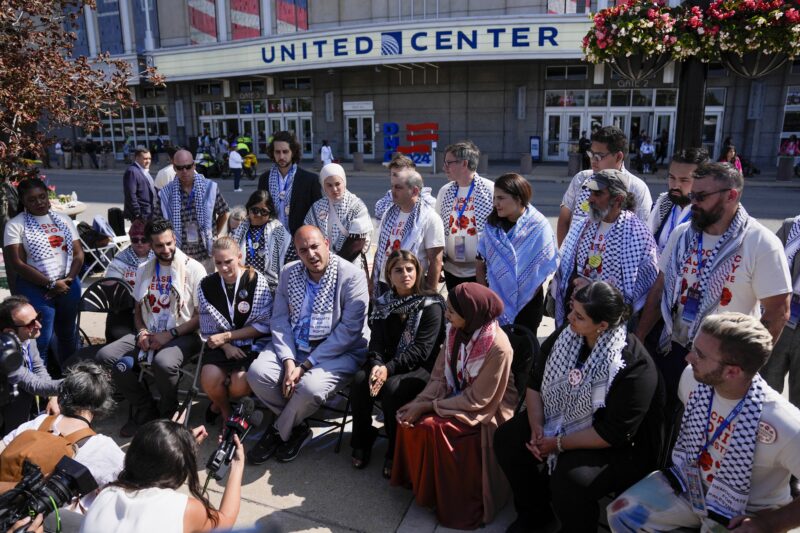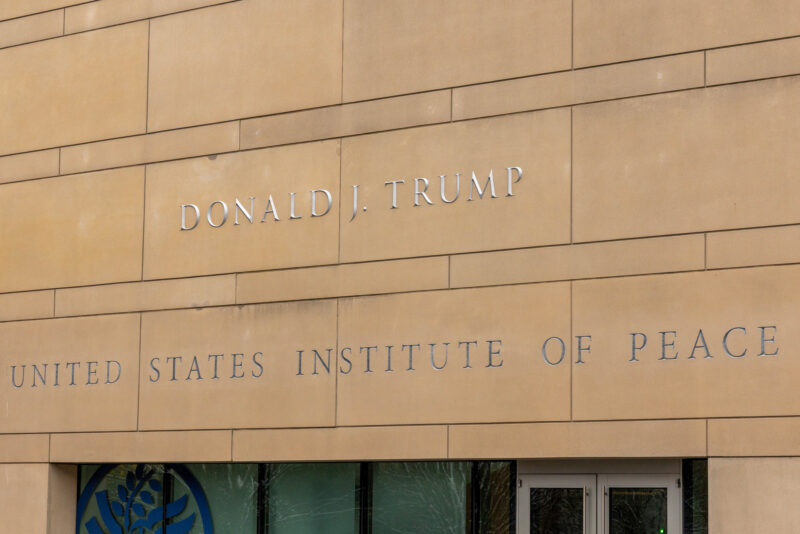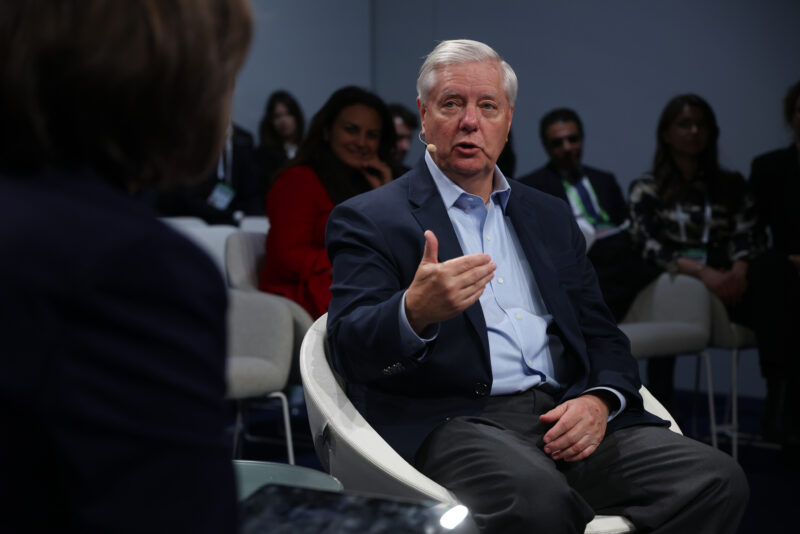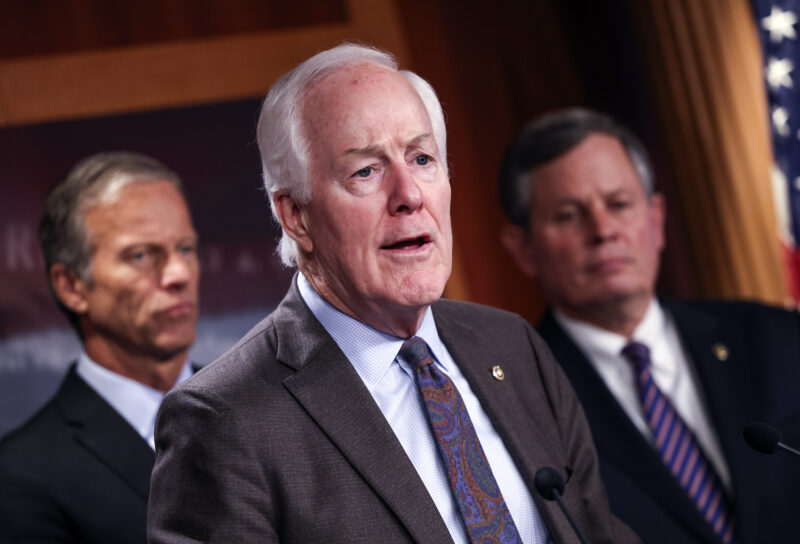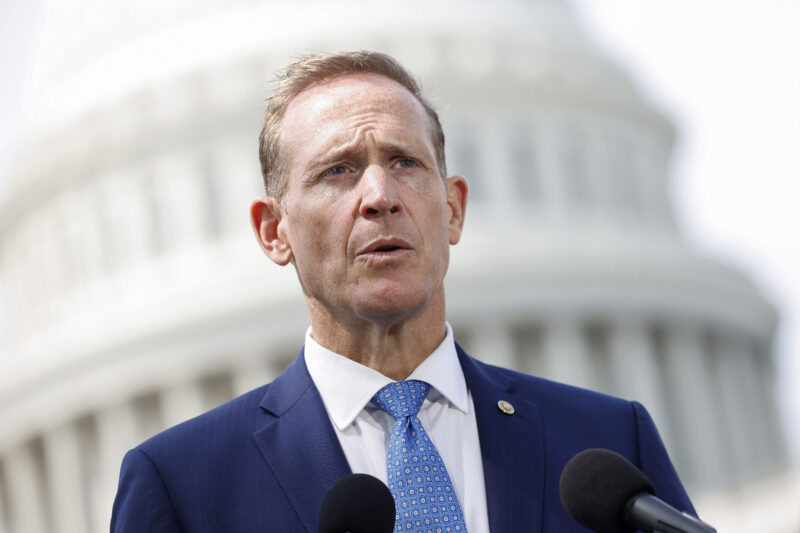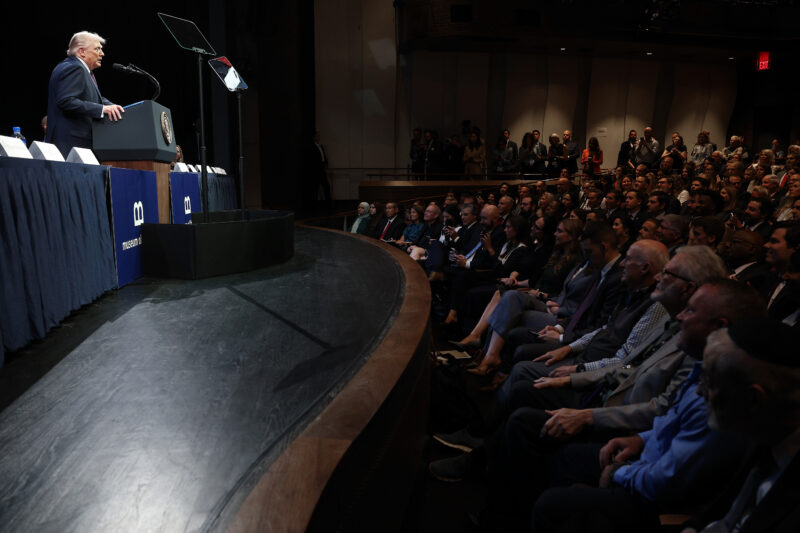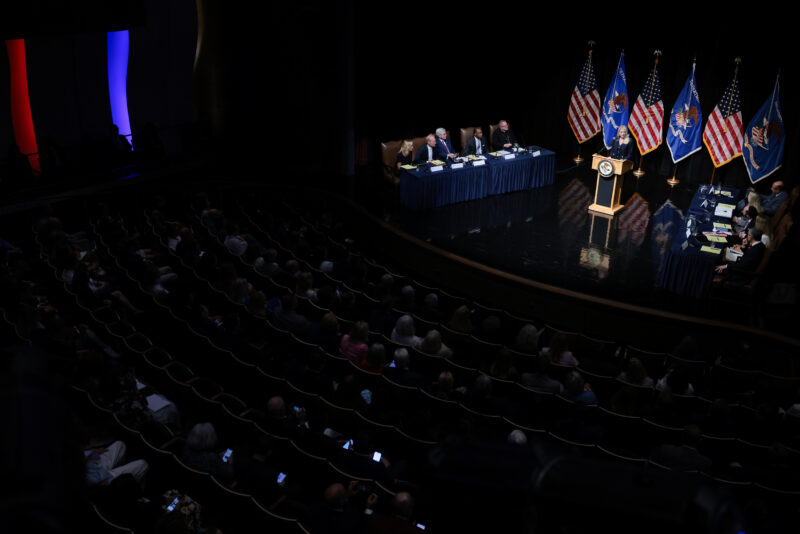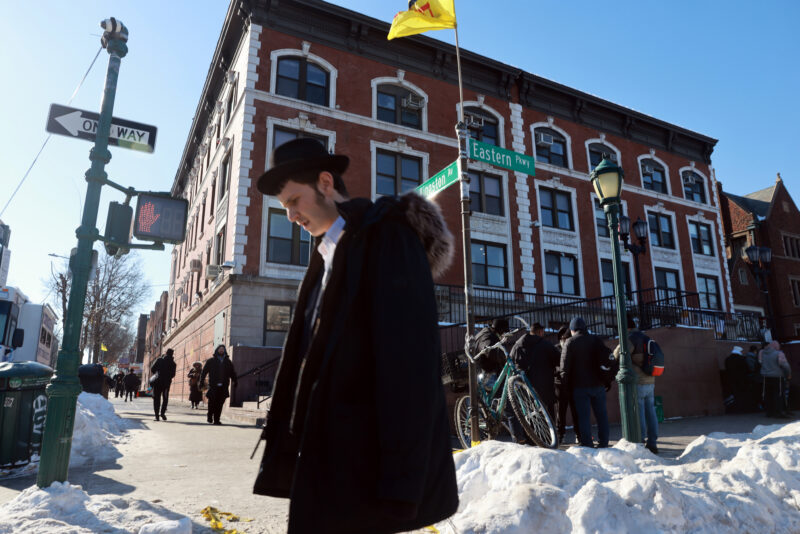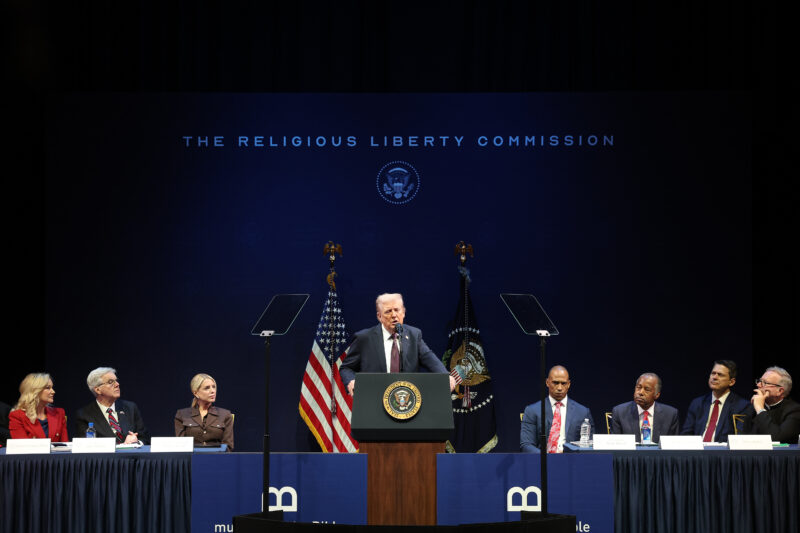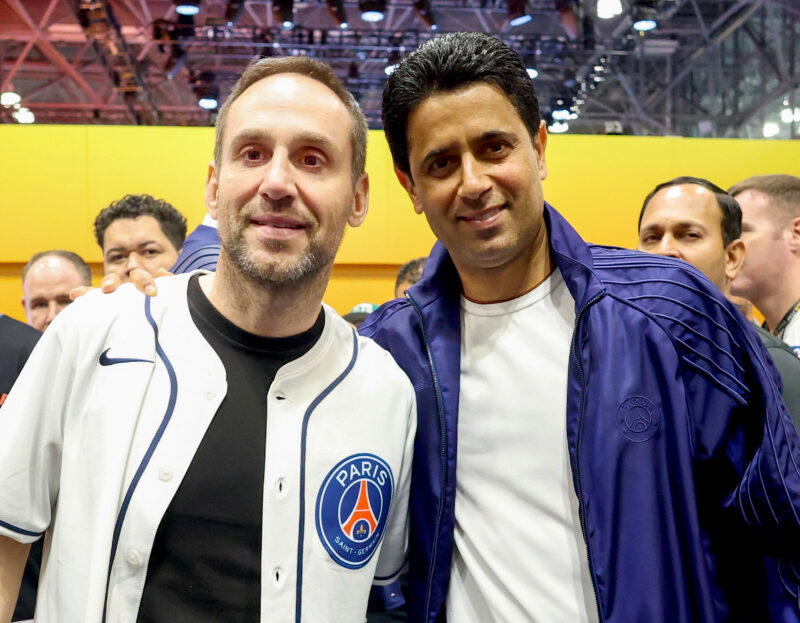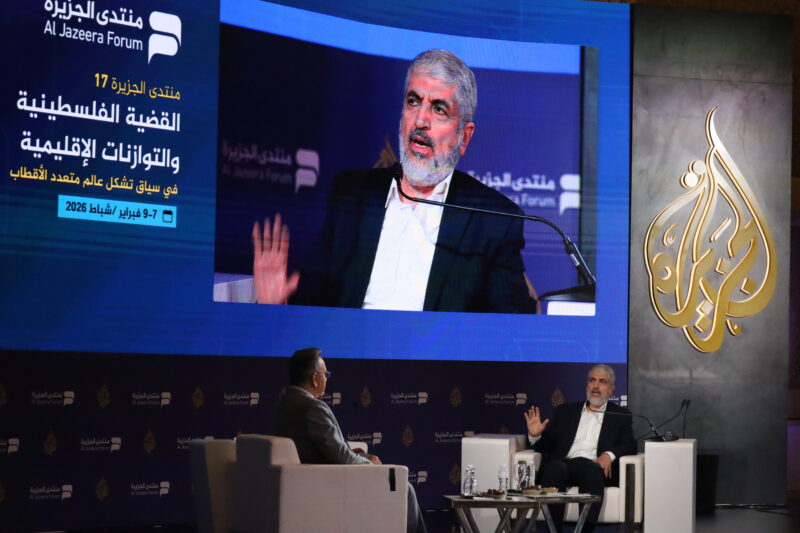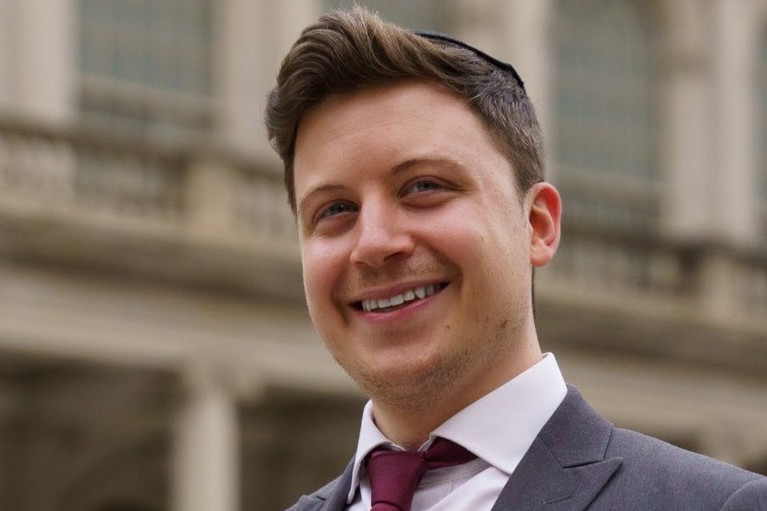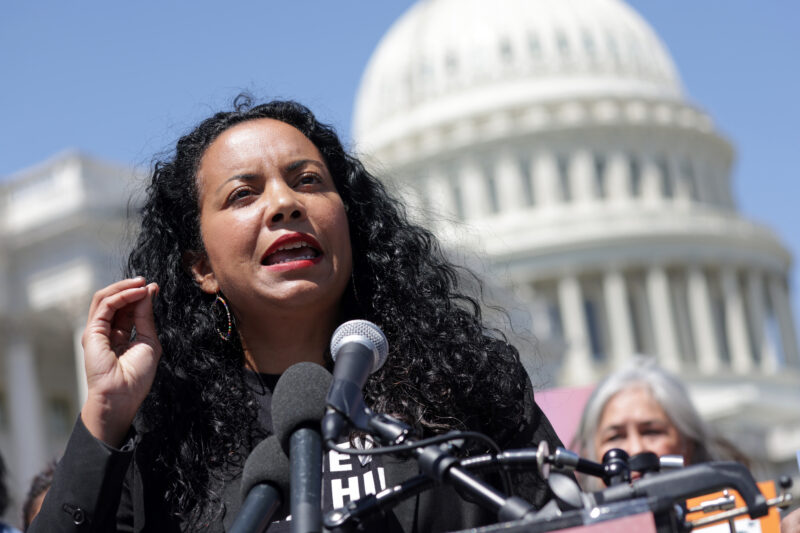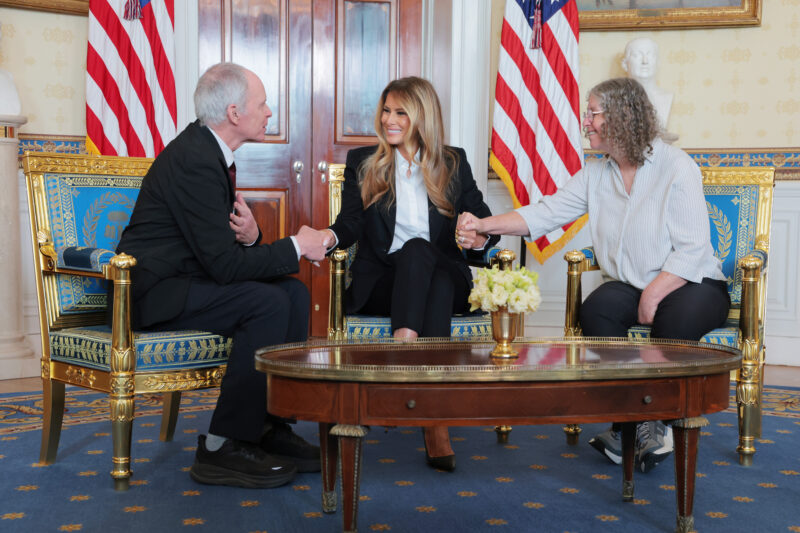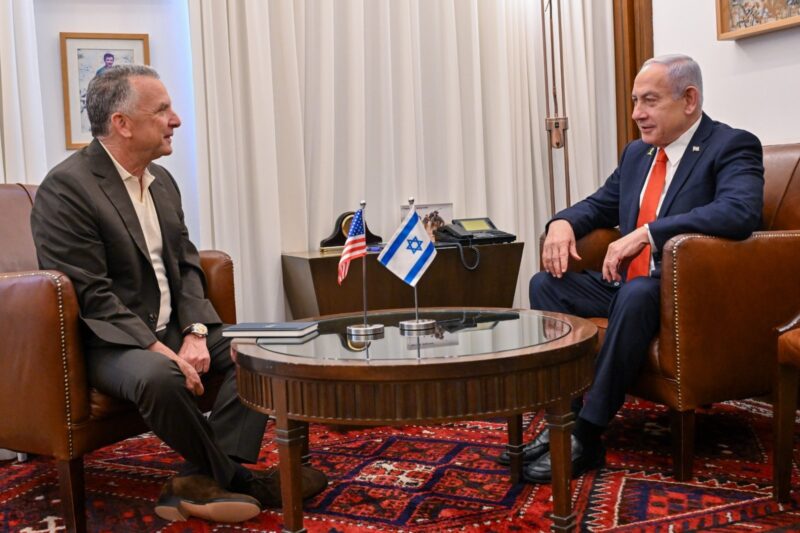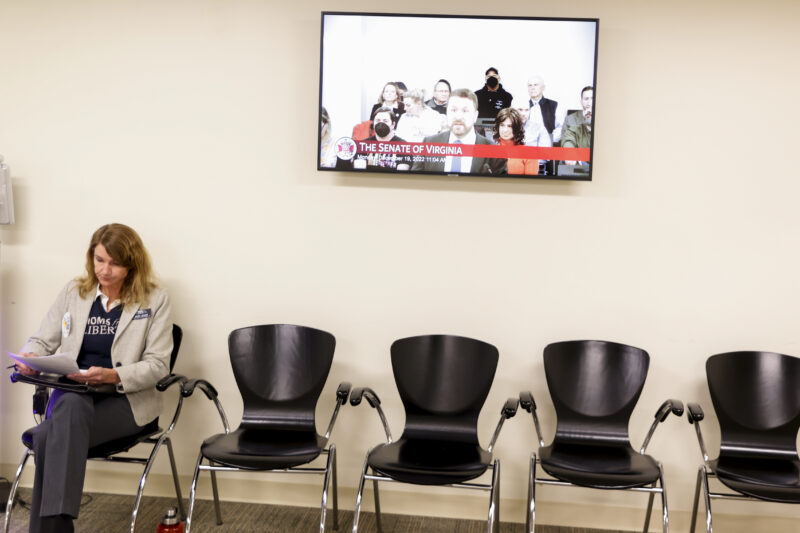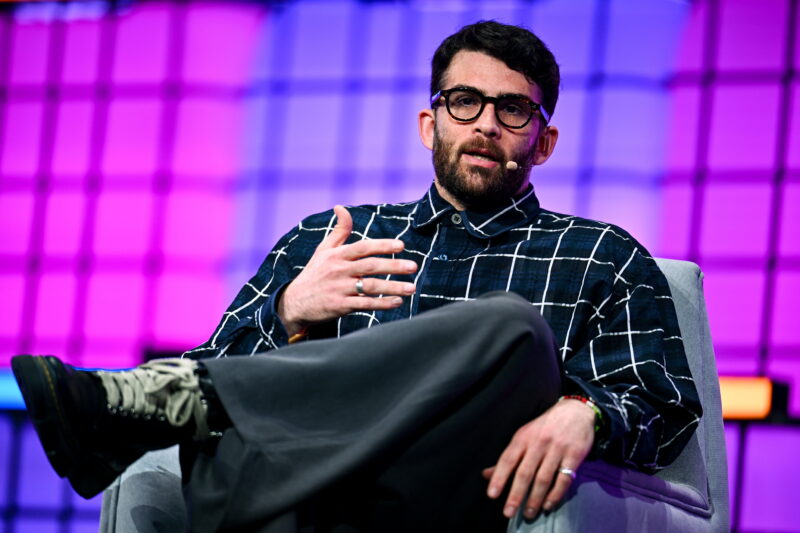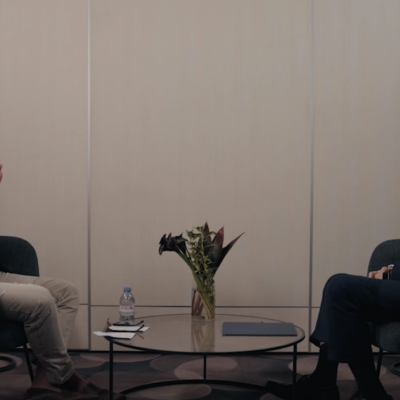
Daily Kickoff: An interview with one of the Colleyville hostages + The Arab influencer embracing peace
👋 Good Wednesday morning!
Israeli Prime Minister Naftali Bennett offered his country’s support to the United Arab Emirates following the Houthi drone and missile attack on Abu Dhabi on Monday that killed three civilians.
Rep. Kathy Manning (D-NC), vice chair of the House subcommittee that oversees the Middle East, North Africa and counterterrorism issues, told Jewish Insider that she is “sure that the [Biden] administration has [it] under consideration” to reinstate the Houthis’s designation as a terrorist group.
Manning said the Houthis “are backed by Iran and what we do know is that Iran is continuing to foster terrorism and support terrorism and fund terrorism around the world. And we need to take whatever measures we can to stop them.”
Manning declined to say whether she thought the administration had made a mistake in initially removing the Houthis’s terrorist designation, explaining that she was “not deeply knowledgeable about the decisions.”
In a statement on the attack, Sen. Chris Murphy (D-CT), who chairs the Senate subcommittee on the Middle East, condemned the Houthi drone strikes and said the “increase on Houthi cross-border attacks… on Saudi Arabia and the UAE is deeply concerning.”
Murphy also condemned the Saudi-led coalition forces. “At the same time, recent coalition airstrikes on Sana’a [Yemen’s capital] also killed a number of civilians, including young children, and destroyed a water treatment facility… It is incumbent on all parties to the conflict to avoid targeting civilians and civilian infrastructure,” he said. “Unfortunately, these incidents will likely continue as long as the war drags on.”
Sen. Todd Young (R-IN), the top Republican on the Senate’s Middle East panel, who worked with Murphy to push for the removal of the Houthis’s terrorist designation last year, said in a statement, “The United States must respond forcefully with sanctions on Iran to cut off its support to the Houthis, while also ensuring that our partners in the region have the weapons necessary to defend themselves in the face of these attacks.”
Young also said that the Houthis’s continued strikes “clearly demonstrate that they are determined to continue the conflict and exacerbate the world’s worst man-made humanitarian catastrophe.” Young did not comment on the terrorism designation for the Houthis.
inside colleyville
Colleyville attacker ‘bought into those antisemitic tropes,’ hostage survivor remarks

SWAT team members deploy near the Congregation Beth Israel Synagogue in Colleyville, Texas, on January 15, 2022.
Jeffrey Cohen, one of four hostages held at gunpoint for 11 hours at Congregation Beth Israel in Colleyville, Texas, over the weekend, told Jewish Insider’sMatthew Kassel on Tuesday that Americans need to challenge instances of antisemitic rhetoric wherever they occur as part of an effort to forestall attacks against Jews that have occurred with increasing regularity in recent years.
Conspiracy theories: Cohen, 57, said the gunman, identified as Malik Faisal Akram, a 44-year-old British national, spouted a litany of antisemitic conspiracy theories as he demanded the release of Afia Siddiqui, a Pakistani woman who is currently serving an 86-year sentence at a federal prison in Fort Worth for the attempted murder of U.S. officers in Afghanistan. “These antisemitic tropes of ‘Jews control the world,’ ‘Jews control the media,’ ‘Jews control the banks,’ ‘Jews control the government’ — he had bought into those,” Cohen told JI. “He was firmly convinced that he could come in here, hold a bunch of Jews hostage, and we — the greater we, the U.S. — would trade we Jews for this one prisoner, this one woman, because we have that much power and influence.”
Challenging stereotypes: At the interpersonal level, Cohen argued that “people need to start thinking about” the antisemitic stereotypes that may once have seemed acceptable but now must be actively countered. “These little throwaway lines, you know, ‘Ach, damn Jew bankers,’” he told JI. “Those lines, which people just put off as being, alright, that’s my crazy neighbor or whatever, they’re not acceptable. They’re not acceptable not just because it’s not… things people say in polite company — they’re not acceptable because these words have consequences, and the consequences that they have is they allow people to dehumanize other people and to buy into a stereotype that is not just ‘this person hurt me’ — it is, ‘his whole community hurt me.’”
Security training: From a more practical standpoint, Cohen said that “every Jewish organization that has a building in the country needs to do active-shooter courses and needs to do it regularly.” Cohen credited such training with helping him — along with a fellow congregant, who hasn’t publicly identified himself, and Rabbi Charlie Cytron-Walker — escape on Saturday evening. A fourth hostage had been released earlier on Saturday. “This is not hyperbole,” he said. “I mean, I knew where the exits were. But until somebody says, ‘Hey, in a situation like this, your number one priorities are run, hide, fight, in that order.’ Well, you know, it’s not like we could hide. We were all exposed.”
Negotiating with terrorists: Cohen recalled that at one point during the standoff, as hunger kicked in, Akram had mentioned that he would let the hostages go one at a time as long as they promised to come back after 30 minutes. “He said, ‘Jeff, does that sound like a good deal to you? Would you come back?’ I said, ‘Honestly, no, it doesn’t. Because it takes me 15 minutes to get home. It takes me 15 minutes to get back. That’s 30 minutes right there. If I’m going to eat anything, I need another 20 minutes to prepare it and then to eat it. And then, I honestly don’t know, would I be able to come back? Would the police stop me?’ “He kind of laughed at that, and I laughed a little bit too, because I had turned it into a little bit of a joke because it was silly,” Cohen said.
Elsewhere: The Washington Post talked to experts who have long said the pervasiveness of such antisemitic beliefs in society can fuel violence against Jewish people. “It’s a variation on a classic antisemitic theme,” said David Feldman, director of the Birkbeck Institute for the Study of Antisemitism, a research institution based in London. “Whereas these ideas about Jewish conspiracy often take shape as an idea of Jews exerting power … [to] advance their own interests, this is a sort of variation on the theme — that if you can only get the Jews to work for you, then you’ll get your way.”





